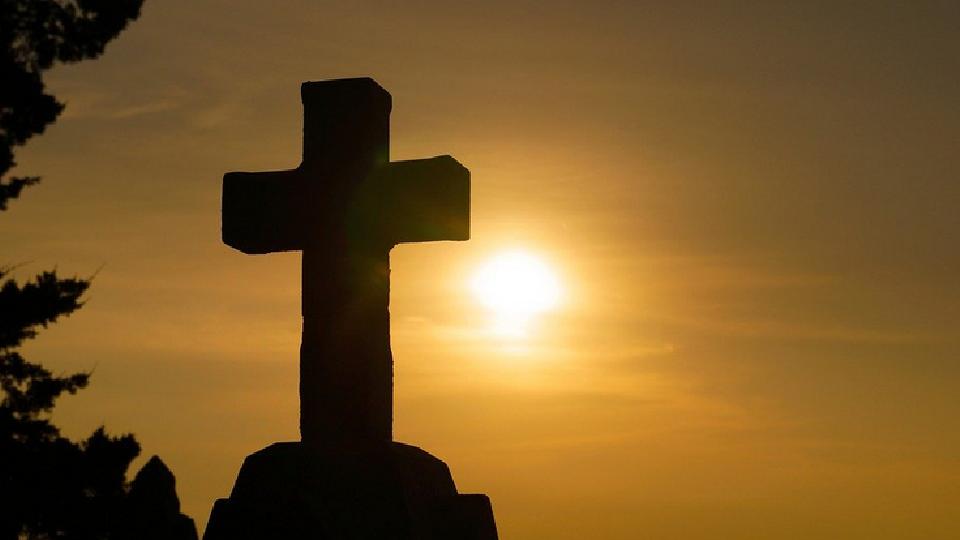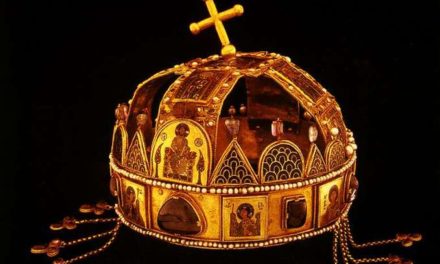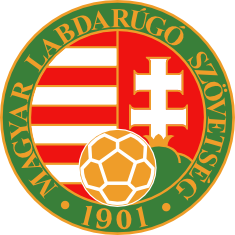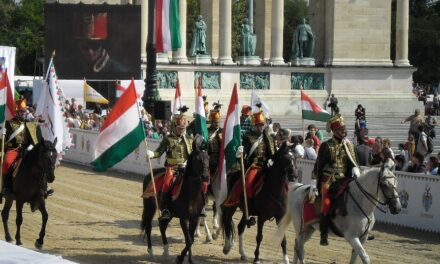I have always loved history, so I read with interest, although with slight reservations based on the title, Viktor László Kránitz's opinion article entitled "We were not the last bastion of Christianity, but the Habsburg Empire", published in Index. Then I fell from one shock to another.
The fact that factual errors can be found in the thesis and erroneous, questionable or unsupportable conclusions can be read became understandable after it turned out that the author was not a professional historian. Since I'm not one either, I'm trying not as a historian, but as a private person to respond to several questionable and sometimes hurtful statements.
First of all, although János Szapolyai is neither one of the positive heroes of Hungarian history nor one of the sympathetic characters, it is more than an exaggeration to blame the whole post-Mohács collapse and even the Trianon tragedy on his neck.To this day, there is no consensus among historians regarding the politics of King János Szapolyai. It is widely believed that he was an Ottoman vassal, although Szapolyai did not pay taxes to the Turks after 1529. At the same time, his rival, King Ferdinand, recognized Sülejmán as the arbiter of Hungarian affairs in 1533, and even symbolically accepted Sülejmán Ferdinand as his son and left the western part of Hungary in his hands as a fiefdom. Pro-Ferdinand contemporaries and much later, pro-Habsburg historians accused Szapolyai of things (paying taxes, seeking approval in Hungarian affairs from the Porte, acknowledging the diplomatic superiority of the "Turkish Emperor", who humiliatingly addressed the Habsburg monarch as "King of Vienna"), which the Until the Peace of Zsitvatorok (1606), Viennese politics did the same.
Author claims that
"the Battle of Mohács is truly a watershed in Hungarian history. In retrospect, the reason for this is not the fact of the battle and the defeat itself, or even the regrettable death of the king, but the role and actions of an ambitious Hungarian lord, Transylvanian voivode János Szapolyai, after the battle."
In fact, the Battle of Mohács resulted in real, immediate deterioration of the country, essentially the immediate fall of the Hungarian state. To evaluate the battle of Mohács, it is enough to count the following heroic dead: the king, 28 barons, 7 high priests, the majority of the county's Spaniards died.
With this, the top and middle levels of state management practically disappeared, since the royal council, or as we would say the government today, was made up of barons and high priests. And this caused an immediate state leadership and public administration crisis.The sentence that Szapolyai
"if he participates in the battle, the Hungarians will probably be defeated in the same way, but the king will presumably survive" lacks any historical basis.
We cannot know what would have happened if... (In any case, it is not clear why Szapolyai was not under Mohács).
If he had been there, why do we think that the king did not die? Will Szapolyai stop the flooding Csele stream? If he's there, why couldn't we have won?Because there are also serious differences of opinion about the course of the Battle of Mohács. What experts agree on is that no European ruler would have stood a serious chance against the Turkish army in that era. There was no reality of pan-European cooperation, and it is not at all certain that it would have been enough against the Turks. However, contrary to the author's claim, we are not to blame for our bad luck, but to an external power that was invincible at the time. We accept Péter Kulcsár's statement:
"The fate of the country was decided by uncontrollable contradictions from within. First of all, the enemy's superiority, the Ottoman aggression, which was an elemental blow to our country's confidence. If someone is hit by an avalanche, it is not worth asking whether they were healthy or sick, whether they tried to hold up the roller or just flattened themselves. In essence, it doesn't matter what he was doing in the last minutes. This is the reason why our historiography is reluctant to deal with the age of the Jagiellonians." (Jagiellonian era, Bp, 1981)
But we didn't hide, we fought. And we created heroic stories worthy of the most beautiful pages of our history, because true heroism is an almost hopeless fight against overwhelming power. György Szondi, István Dobó, György Thury, Miklós Jurisics, Bálint Balassi, the two Miklós Zrínyis set an example of the amazing patriotism, courage and faith that people of today can only dream of.
They and the braves of Végvár arrested the Turks. They were then the bulwark of Christianity.Which, by the way, dates back to the appearance of Turkish. The XIV. century, the general belief that the Turks should be expelled from Europe was formed. He appeared at our Turkish borders during the time of our King Louis the Great, and was the first to win the name "Athleta Christ" because of his anti-Turkish battles.
Even before the fall of Byzantium in 1410, the Pope called Hungary "the protective shield of the Christian faith and an impregnable defensive wall".
Among the countries defending the East, Hungary was seen as the most suitable strength. After the victory in Nándorfehérvár, the title of the bulwark of Christianity spread about the country. II. From 1458, Pope Piusz was a strong advocate of the anti-Turkish wars and praised the Hungarians. And such bulwarks were the "athleta Christi" Szkander bey, and of course the greatest Turkish beater, János Hunyadi.
So the defensive bastion is multifaceted and complex. Its members are Poles, with János Sobieski at the head, who liberated Vienna in 1683. Together with the Habsburg troops, of course, because then the 150-year-awaited collaboration was finally realized, and the liberation of our country began.And the statement that it is not true either
"in the end, it took the Habsburgs 150 years, a lot of money and blood sacrifices to drive the Turks out of Hungary, which Szapolyai brought to us".
For a century, let's face it, they didn't do much, although they wouldn't have had much of a chance since it was the 16th century. Even in the 19th century, the Turkish forces were not only superior in numbers, but also in tactics and weapons. This changed in the XVII. century, and results in the Battle of Szentgotthárd, the first major battle since the end of the 1400s, where the Turks were defeated. And even then the liberation of our country does not begin, even though at that time we made an alliance with the Habsburgs.
When Hungary finally freed itself from the Turkish yoke, it was due to the many lucky developments and cooperation of European (that is, essentially the world at that time) politics, and the conscious or unconscious actions of many actors for the benefit of our country. (To get to know the details of this, I recommend Péter Hahner's fascinating work entitled "Hungary's Luck".) Although the role of the Habsburgs in this is, of course, unavoidable.
And then they tried to treat our country as a conquered province, as they did with the Czechs, and later - after the three-power division - with the Poles.
However, we managed to convince the dynasty that the country will not tolerate the disregard of its laws, traditions, and freedoms, and is capable of putting up a resistance that could cause serious trouble for the Empire. This historical mission II. It was carried out by Ferenc Rákóczi.One of the greatest figures in our history, a selfless, educated, benevolent statesman, an excellent organizer, who never called his soldiers kurucs, lest they be identified with Thököly's followers.
And at the end of the article, the author's main problem is revealed: "Unfortunately, from Szapolyai, we inherited this sad, rather lost Hungarian fate after 1526, this curmudgeonly Hungarian mentality that defies the whole world, the whistling of which can also be felt in Orbán's Hungary."
Every statement of this sentence is questionable, presents historical facts in a false light, and applies an inappropriate connection to today's Hungary.
To mention just one fact: the Rákóczi War of Independence took place during the War of the Spanish Succession, essentially one of its secondary theaters, so we did not defy the whole world, but actually had more allies than the Habsburgs. And this is also true for countless other events in our history.
Summa summarum: It is an obvious impossibility to sew all the sad events that have happened since then into Szapolyai's neck.The responsibility for the fall of the medieval Hungarian state is not borne by the national side, although it was obvious that it could have acted more fortunately on occasion. We really fought as the last bastion of Christianity for centuries, naturally together with other peoples.
For us, the protection of national independence, freedom, and self-determination is the idea that made it possible for us to still be here while the Habsburg and Turkish Empires no longer exist.
And if we trust ourselves and believe that we were and can be a victorious country, then we will be.
Dr. György Temesszentandrasi, physician
Featured Image: Pixabay












